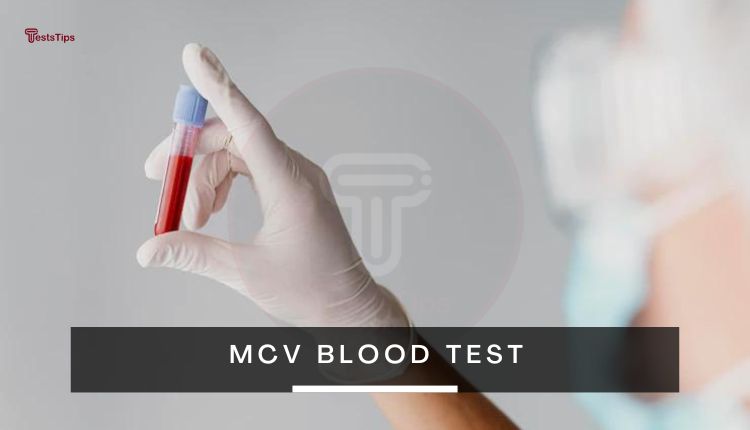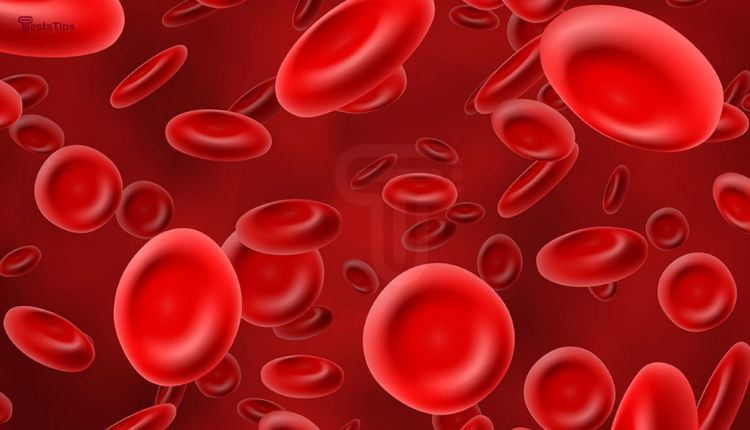MCV Blood Test. Preparations and Results Interpretations
The mean corpuscular volume test
MCV Blood Test “Mean Corpuscular Volume”. What is its purpose, and how to interpret results? Read on to find out everything you need to know about the test.

Table of Contents
The MCV blood test measures the average size of your red blood cells, which can be useful in diagnosing various health conditions. By understanding what it is, knowing how to interpret results, and following tips from professionals, Read on to find out everything you need to know about MCV tests.
What is MCV Blood Test?
In the MCV Blood Test, MCV stands for mean corpuscular volume. the test is a laboratory test that is used to measure the average red blood cell size in a specimen. The MCV test is part of a group of tests that help doctors diagnose specific types of anemia.
An MCV test is usually performed as part of a complete blood count (CBC), which is a routine screening test that is used to assess the health of your blood.
Elevated or decreased MCV levels may indicate Abnormal indicate a number of conditions, including anemia, folate deficiency, liver disease, hypothyroidism, and chronic hypoxia. anemia and may be indicative of other conditions such as pregnancy, cancer, or liver disease. If your MCV is abnormal, further testing may be required to determine the cause. There are some risks associated with the MCV test, but most often the results are normal.
If you have any concerns about your MCV test results, please consult with your doctor.
What is the significance of an MCV blood test?
As part of your routine checkup, your doctor may request a complete blood count, which includes an MCV test. You may also be subjected to the test if you have a chronic (long-term) condition that could lead to anaemia or if you exhibit anaemia symptoms:
- Breathing difficulties
- Fatigue or weakness
- Headache
- Dizziness
- Arrhythmia
“Related: Gamma Glutamyl Transferase Test. Purpose and Results“
Test preparations
This test usually does not require any special preparation. Unless this analysis is required with a group of other tests that require certain preparations, such as fasting or stopping some medications.
How does an MCV Blood Test work?

A small needle will be used by a health care professional to draw blood sample from a vein in your arm during the test. Following the insertion of the needle, a small amount of blood is collected in a test tube or vial.
When the needle goes in or out, you may feel a sting. This usually only takes a few minutes.
Results Interpretations
The normal range for MCV is between 4.3 and 5.5 million cells per cubic millimeter (MCV) , or 80–100 femtoliters.
If your red blood cells are smaller than normal, this could indicate:
- Iron-deficiency anaemia is one type of anaemia.
- Sideroblastic anemia.
- H. pylori infection.
- Thalassemia.
If your red blood cells are larger than normal, this could be a sign of:
- Pernicious anaemia is caused by:
- A vitamin B12 deficiency.
- A disease that inhibits your body’s to use vitamin B12, including certain autoimmune disorders, celiac disease, or Crohn’s disease.
- Folic acid deficiency anaemia.
- Liver disease.
Anemia can also occur with a normal MCV. This is possible if the anemia is caused by a condition such as:
- A sudden blood loss
- Kidney disease
- Aplastic anaemia (infrequent)
If you are a pregnant woman or breastfeeding mother, your MCV may be low due to low iron levels in your blood. If you notice an abnormal MCV result, it is important to consult with your doctor as soon as possible to determine the cause and take appropriate action.
Other Tests That Needed to Diagnose Anemia

Anemia is a condition in which the number of erythrocytes red blood cells (RBCs) in a person’s blood is low. In order to diagnose anemia, your doctor may require you to undergo a series of tests known as the red blood cell indices. These tests include a complete blood count (CBC) and a mean corpuscular volume (MCV) test. The MCV test is part of a group of tests called the red blood cell indices. The other tests in this group are:
- Red blood cell count (RBC)
- Red blood cell differential (RDW)
- Blood differential (BD)
- Iron tests
- B12 level
- Hemoglobin (hgb)
- MCHC
- MCH
- Hematocrit (HCT).
- Reticulocyte count
- Together, these tests help to determine the type of anemia that a person is suffering from.
The MCV blood test is part of a group of blood tests called red blood cell tests, and is helpful in diagnosing conditions such as anemia, folate deficiency, liver disease, hypothyroidism, and increased risk of infection. If you have an abnormal MCV test, your doctor will likely recommend further tests to help diagnose the underlying condition.
